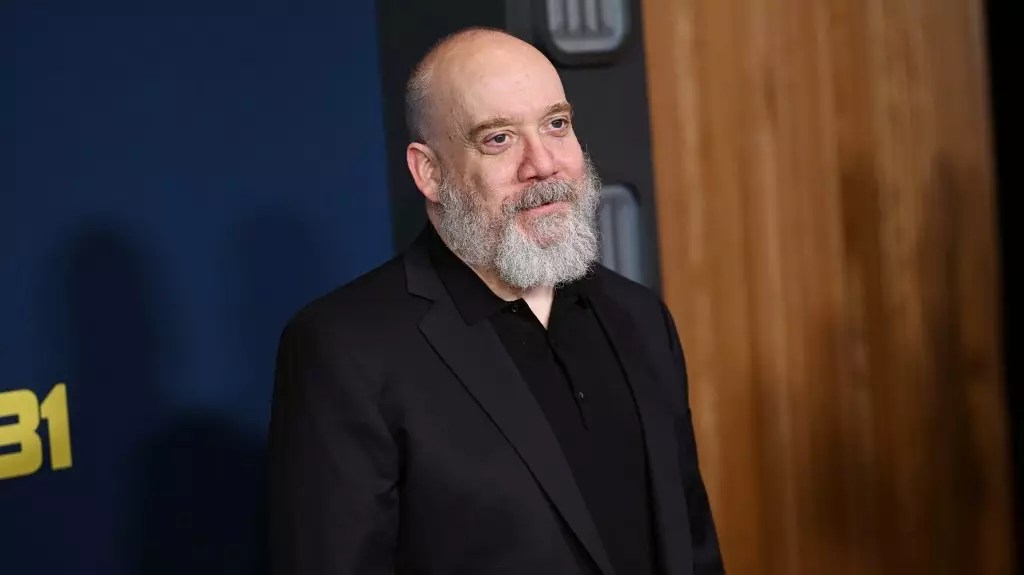In the world of television and film, certain actors transcend their roles, leaving a legacy that shapes the narratives of the stories they inhabit. Paul Giamatti recently shared his thoughts on the upcoming film, “Downton Abbey: The Grand Finale,” highlighting the profound absence of Dame Maggie Smith, whose remarkable and intricate portrayal of Violet Crawley, the Dowager Countess, has etched itself into the annals of television history. Giamatti’s reflections not only serve to honor Smith’s legacy but delve into the collective emotional experience of those involved in the project following her passing.
As Giamatti prepares to reprise his role of Harold Levinson—previously seen in the show’s Christmas special during Season 4—he acknowledges both the gravity of losing such a pivotal figure and the inspiring motivation to create a piece of work that embodies her spirit. His statement resonates deeply: “It was not the same without her, but it felt very much like in her honor in some way.” This sentiment encapsulates the dual nature of their task; while they mourn a cherished colleague, they also aim to weave her essence into the fabric of the film, creating a narrative that not only entertains but also pays homage to the beloved character that captivated audiences worldwide.
The Surprising Return of Harold Levinson
Giamatti’s uninhibited surprise at being invited back to the storied “Downton Abbey” universe serves as an intriguing facet of his narrative. From a one-off character to a significant role in the upcoming cinematic piece, his journey illustrates the unpredictability of storytelling—especially in a narrative landscape firmly rooted in legacy and familial ties. “I don’t have an important character in this story,” he initially believed, yet he hints at upcoming significance. This progression begs the question: what defines importance in storytelling? Is it the screen time or the emotional resonance that the character evokes? Giamatti’s reassessment invites viewers to consider that significance lies not merely in quantity but in the quality of the impact one character can have within an ensemble.
His remarks echo the perspectives of the film’s executive producer, Gareth Neame, who has previously indicated that the narrative would imbue a heartfelt tribute to Smith. Neame’s reflections underline a truth that resonates through the ages: the pain of loss can contextualize narratives in unexpected, poignant ways, leading to greater depth in character arcs and storylines. “The loss of the Dowager… feels far more significant,” Neame articulated, delineating the sense of authenticity that actors contribute when mourning a matriarch—both on and off the screen. This layered storytelling becomes even more pronounced when the actors are themselves mourning the loss of an influential figure, inviting audience members into a shared experience of grief and remembrance.
A Reunion of Talent and Emotion
As “Downton Abbey: The Grand Finale” gathers an ensemble cast that includes both returning favorites and newcomers like Joely Richardson and Alessandro Nivola, it becomes evident that the film is rich in depth and diversity. This blend of talent offers a unique opportunity to explore various dimensions of the narrative, all while paying respects to Smith. The emotional weight carried by the ensemble must surely manifest in their performances, transforming the film into a collective homage that simultaneously celebrates the past while paving the way for new stories.
With Giamatti’s return being such a surprise, it ignites curiosity about the new dimensions his character will explore and how this contributes to the overarching narrative tapestry. What implications will the return of Harold Levinson have for the Crawley family, and how will it resonate with audiences familiar with the dynamics established earlier in the series? It exemplifies how tightly knit relationships within narratives can often result in unexpected yet powerful developments, adding layers of intrigue to an already established saga.
In a time where remembrances are often surface deep, “Downton Abbey: The Grand Finale” aspires to do more. It aims to transcend mere nostalgia by capturing the essence of a beloved character who shaped its identity while inviting the audience to engage with their own reflections on legacy, loss, and the continuity of storytelling through new interpretations. The combination of Giamatti’s perspective and the film’s gravitas points towards a potent and heartfelt cinematic experience that speaks to the core of what it means to honor those we have loved and lost.
